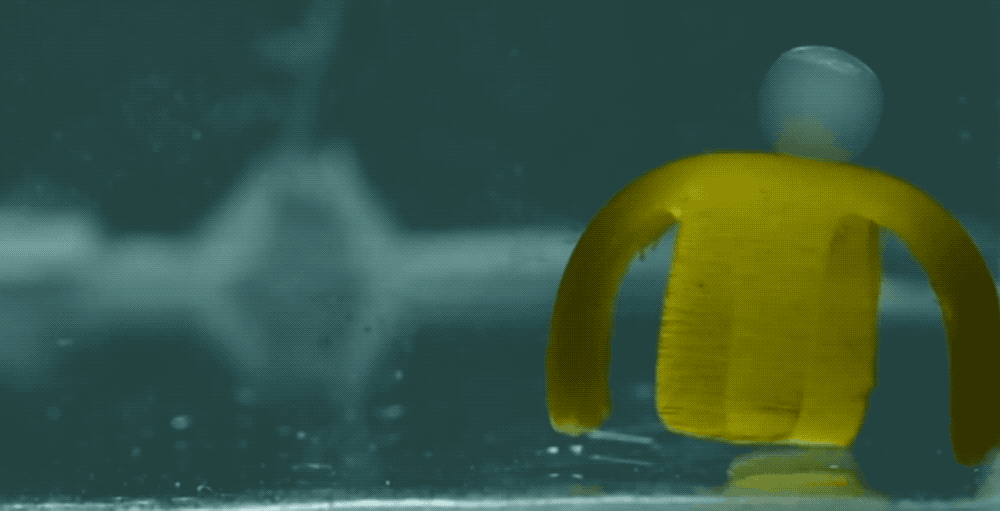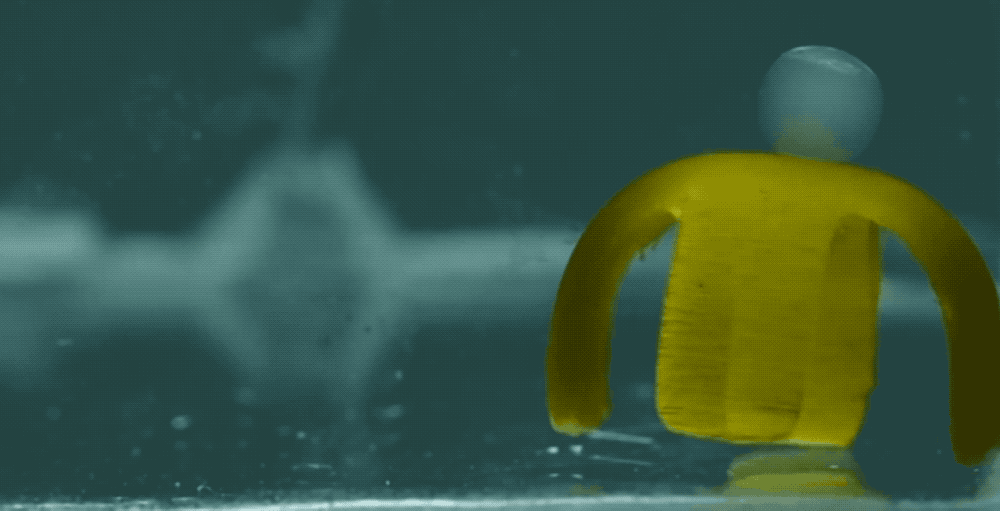A new robot created by researchers at Northwestern University looks and behave like a tiny aquatic animal, and could serve a variety of functions including moving things place to place, catalyzing chemical reactions, delivering therapeutics and much more. This new soft robot honestly looks a heck of a lot like a lemon peel, but it’s actually a material made up of 90% water for the soft exterior, with a nickel skeleton inside that can change its shape in response to outside magnetic fields.
These robots are very small – only around the size of a dime – but they’re able to perform a range of tasks, including walking at the same speed as an average human, and picking up and carrying thing. They work by either taking in or expelling water through their soft components, and can respond to light and magnetic fields thanks to their precise molecular design. Essentially, their molecular structure is crafted such that when they’re hit by light, the molecules that make them up expel water, causing the robot’s ‘legs’ to stiffen like muscles.

Image Credits: Northwestern
Magnetic fields can then be applied to make the legs move, thanks to the embedded nickel skeleton which is ferromagnetic. Use of light and magnetic fields together, along with highly accurate computation, can produce very precise movement along desired paths.
The researchers behind this little bot envision future versions that are even smaller – small enough to operate on a microscopic level, perhaps for applications including targeted drug delivery within a patient. They could also theoretically be programmed to work together in a “warm”-like arrangement, which would allow them to scale up to handle larger tasks, such as potentially acting as an on-demand suture in case of injury.
A lot of research and work will be required to get to that kind of application, but the existence of the bots even at this stage is a remarkable achievement and a hint at what’s to come from soft robotics and intelligent materials that don’t require the kind of heavy and bulky compute associated with today’s production robots.













